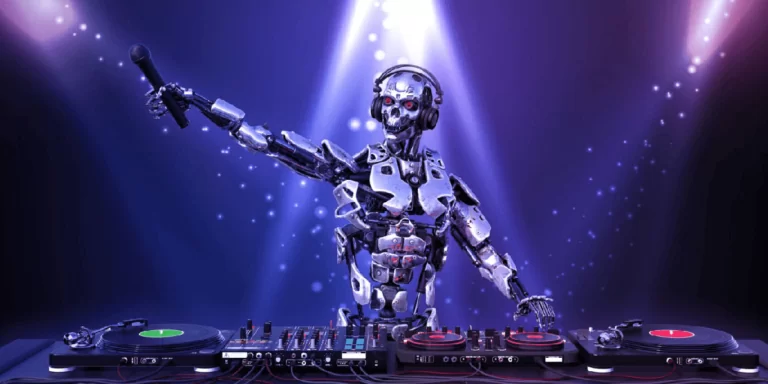
Artificial intelligence is changing the way music is created. The record labels' profit was based on physical album sales and digital downloads, and they feared that streaming would cannibalize these revenue streams.
Once record labels were able to negotiate better royalty rates and build a sustainable business model, streaming eventually became the norm.
But a radical new shift is emerging in music: artificial intelligence is changing the way music is created.
A viral song used by the AI to replicate the voice of Drake and The Weeknd titled "Heart on My Sleevewas streamed 15 million times before being removed. They liked it a lot, but the fact that someone used generative artificial intelligence to create a believable song could become a problem for music labels.
Shortly after the first song was removed, two other AI Drake songs were featured online, one is called “Winters cold" and another one "Not A Game".
And suddenly, AI-generated Drake clones appeared everywhere online, plus AI songs from Tupac and Biggie started trending on TikTok.
For record labels, this could become a problem. The rapid spread becomes difficult to control online, and not comparable to the Napster problem, which involved localization and the closure of distribution channels.
The internet is fluid, it's a copier, and content can be anywhere. What will happen when there are hundreds, thousands of AI Drake songs uploaded regularly?
Drake's music label, Universal Music Group, said the reason the song was removed is because "Generative AI training using our artists' music infringes copyright."
We are not sure whether this is true or not, in fact there is no legislation yet in any state regarding the fair use of AI training data. However, it is clear that the "personality rights"
I personality rights, sometimes referred to as right of publicity, are rights for an individual to control the commercial use of their identity, such as their name, likeness, likeness or other unique identifier.
- Wikipedia
So, at the very least, celebrities and musicians will likely win lawsuits based on the rights of the personality, and not because of copyright infringement.
However, not all musicians can share the opinion that this should be banned. Some see it as an opportunity, like what Grimes is doing.
And some have reworked the idea, starting to gamify it.
Zach Wener has proposed a $10k music production contest on the best AI Grimes song.
Most likely, what is on the horizon is that generative AI will democratize music creation.
The average person with no music training, or music production skills, will be able to create songs by making suggestions and using AI tools. Musicians who possess knowledge of music theory and/or music production will be able to do this faster and on a larger scale.
Famous musicians can do what Grimes is doing, allowing fans and artists to be part of the co-creation process. It remains to be seen how this will manifest itself. But in all cases, I think it is extremely interesting.
In all cases, if record labels find a way to monetize AI-generated music, then it will become a new legal revenue stream.
It is important to note that AI Music can be categorized differently and each type of AI-generated music would likely have a different path to adoption.
How different forms of AI Music are being accepted is primarily based on one important question:
Where is the value of music located?
For example, people like music based on:
If the second point were the driving factor of the listening experience, then completely AI-generated music is starting to become culturally accepted.
I personally believe that the human experience, the energy of live music and the humanity of the artist is the reason why it will be a while before AI-generated music can be thought of as a replacement for musicians.
Where I think AI will have the biggest short-term impact will be in the collaborative music AI and in AI voice cloning approved.
In addition, we will see a new role of AI music maker that will emerge… maybe made up of fictitious identities, like the band Gorillaz: digital native band made up of fictitious identities.
Ercole Palmeri
Developing fine motor skills through coloring prepares children for more complex skills like writing. To color…
The naval sector is a true global economic power, which has navigated towards a 150 billion market...
Last Monday, the Financial Times announced a deal with OpenAI. FT licenses its world-class journalism…
Millions of people pay for streaming services, paying monthly subscription fees. It is common opinion that you…